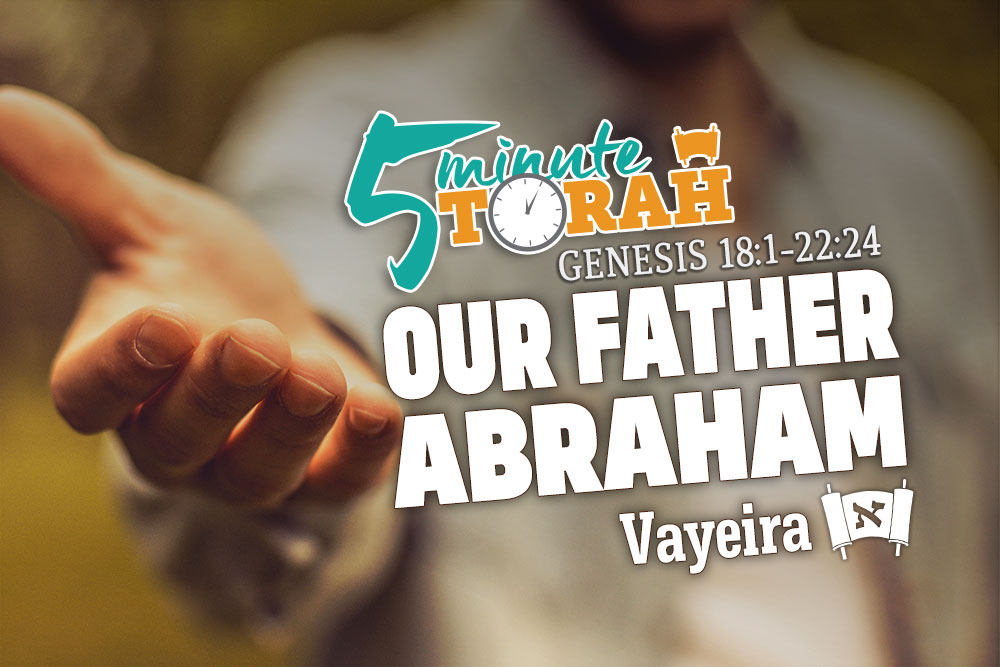Our Father Abraham
Series:

Parashat Vayeira (Genesis 18:1-22:24)
Many people are familiar with the children’s song, “Father Abraham.” It begins, “Father Abraham had many sons, and many sons had Father Abraham. I am one of them, and so are you. So, let’s just praise the Lord.” Through repetition and a series of choreographed movements, this song ingrains the concept into a child that Vayeira, this week’s Torah portion, is indeed true. Abraham did become the father of many nations and is affectionately called Avraham Avinu, Our Father Abraham. Paul says that Abraham is “the father of all who believe” (Romans 4:12). We who have put our trust in Yeshua have become the spiritual offspring of Abraham, the father of our faith.
According to our Torah portion, the LORD chose Abraham as the father of many nations for specific reasons:
The LORD said, “Shall I hide from Abraham what I am about to do, seeing that Abraham shall surely become a great and mighty nation, and all the nations of the earth shall be blessed in him? For I have chosen him, that he may command his children and his household after him to keep the way of the LORD by doing righteousness and justice, so that the LORD may bring to Abraham what he has promised him.” (Genesis 18:17–19)
Abraham was chosen in order “that he may command his children and his household after him to keep the way of the LORD by doing righteousness (tzedakah) and justice (mishpat).” In Hebrew, doing righteousness is a synonym for taking care of those in need. And when native Hebrew speakers use the word tzedakah, righteousness, most often they mean charity. By Yeshua’s day this concept was in full force. In Matthew 6, Yeshua uses the word in this manner when he says, “Beware of practicing your righteousness before other people” (Matthew 6:1). Justice, mishpat, on the other hand, often connotes strictness. The midrash tells a story to explain one way that Abraham did righteousness and justice.
Abraham and Sarah were known for their hospitality. According to the midrash, they used to take in travelers and give them food and lodging. Once they had enjoyed a wonderful meal, Abraham would ask them to give thanks to Hashem. If they refused, then he would demand payment for the food they had consumed. Because he demanded such a high rate for the food, they would be happy to bless his God. Abraham began with tzedakah (charity), but would add to it mishpat (strictness).
According to a more literal reading of the text, however, the righteousness and justice Abraham would teach to his children would be in relationship to the basic principles of Torah ethics. Even though the Torah had not yet been given to Israel, Abraham would live out its very basic principles and teach his children to do likewise. His example would set the pattern for his descendants after him, as it is said, “The deeds of the fathers are the portents for the children.” Therefore, to be a child of Abraham is to follow in his footsteps.
How can we follow in our father Abraham’s footsteps? Hospitality is an obvious way. Obedience is another. We could list a host of others. May we look to Avraham Avinu as an example of our faith, following his lead at living a life that is pleasing to Hashem and passing that life down to the next generation.








